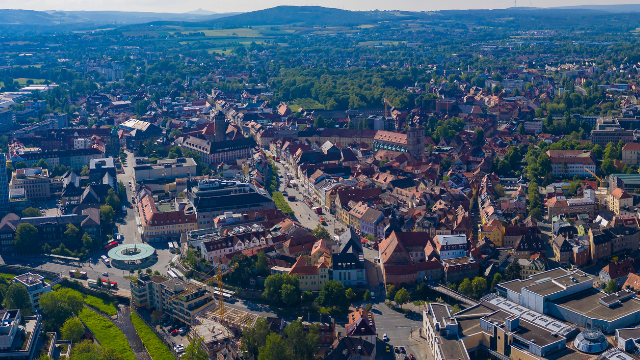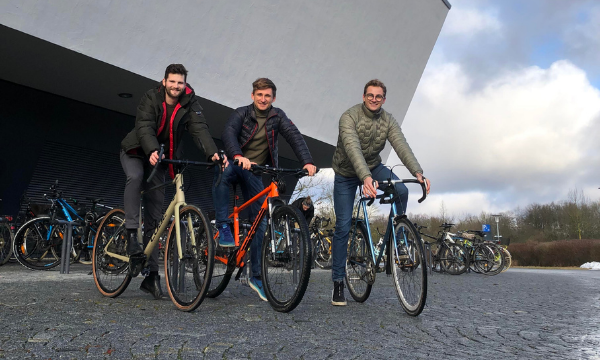
The Bayreuth region is well positioned for the future
Germany is developing differently, but for most people the future looks good – including in the Bayreuth region. This is the result of a study by the SPD-affiliated Friedrich Ebert Foundation. The districts and independent cities in Germany were examined according to many different criteria and with regard to both the status quo and their future viability.
According to the results of the study, the Bayreuth region is currently in the solid middle in a model consisting of five clusters. All values determined and relevant to the analysis are largely stable and close to the national average – both in terms of salaries, poverty, life expectancy, voter turnout, but also in terms of infrastructure such as schools or fast internet. According to the study, these are precisely the building blocks for a successful future.
The researchers see the partial remoteness of the towns as a disadvantage, especially in rural parts, which can make the journey to medical care or promising jobs long and complicated. But there is affordable housing in these regions – a factor that certainly contributes to the fact that these regions are currently growing faster than others – and will probably continue to do so in the future.
Positive developments
When looking into the future, the researchers see four different clusters of regions, with the Bayreuth region being in the two positive clusters when it comes to future viability and resilience to problems that arise. The Bayreuth district belongs to the group of “resilient rural areas” that are well positioned for the future. In addition to below-average values in terms of economic diversity, child care as well as fiber optic and rail connections, these areas are particularly impressive due to a good demographic situation on the labor markets, the above-average attractiveness of these areas for highly qualified people from abroad and, in particular, the high municipal investments in property, which “the “We will be able to (partially) compensate for existing infrastructure deficits in the future.” The researchers see this as good prospects for being prepared for future crises and transformation challenges.
According to the study, the city of Bayreuth is one of the “spatial innovation poles”, which is essentially characterized by metropolitan regions and large cities. Many medium-sized cities throughout Germany now also belong to this group. Many people, especially young people, work in knowledge-based professions in these regions, and the number of company foundations and patent applications is above average. An already high proportion of foreign skilled workers and academics reduces the shortage of skilled workers and ensures further immigration in the future. The infrastructure is good and offers many advantages. And: The municipalities in these regions are investing a lot for the future.
Overall, the study sees Germany as well positioned for the future, because more than half of the people in Germany live in regions with very high overall future potential and great resilience to crises.





